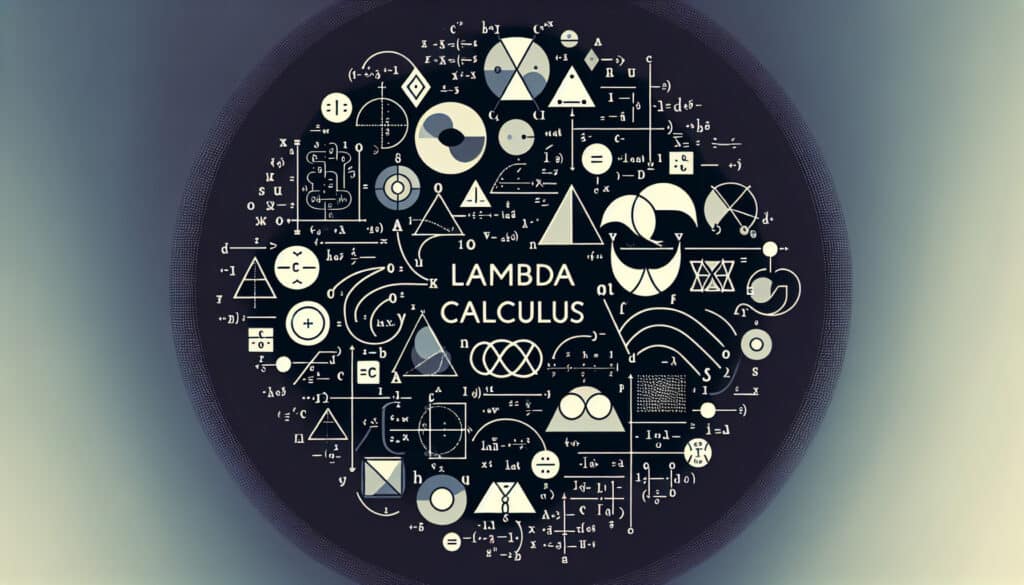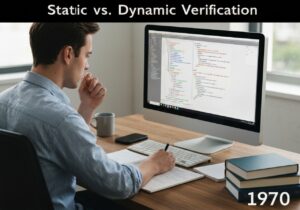A formal system in mathematical logic for expressing computation based on function abstraction and application using variable binding and substitution.
- المنهجيات: الهندسة, الجودة
حساب التفاضل والتكامل لامدا

حساب التفاضل والتكامل لامدا
- الذكاء الاصطناعي (AI), ديناميكيات الموائع الحسابية (CFD), Computer Algebra Systems (CAS), التصميم من أجل التصنيع الإضافي (DfAM), التفكير التصميمي, التعلّم الآلي, الشبكة العصبية, هندسة البرمجيات
الهدف:
كيفية استخدامه:
- A theoretical framework for computation that is based on the concept of functions. It is used in computer science to study the properties of programs and to design new programming languages.
الايجابيات
- Provides a powerful and elegant framework for computation; Has had a profound impact on the development of computer science.
سلبيات
- Can be abstract and difficult to understand; Not directly applicable to most practical programming tasks.
الفئات:
- الهندسة
الأفضل لـ
- A foundational theory in computer science, used in the design of programming languages and the study of computability.
Lambda Calculus serves multiple applications across various domains in computer science, influencing both theoretical and practical aspects of programming and software development. Primarily, its utilization can be seen in functional programming languages such as Haskell, Lisp, and Scala, where it influences the design and implementation of language features like first-class functions and lazy evaluation. Industries such as telecommunications, finance, and artificial intelligence leverage its principles to build robust algorithms that enhance performance and optimize function composition. During the early phases of software development, particularly in requirements analysis and system design, Lambda Calculus provides a rigorous framework for formal verification and reasoning about program behavior. Teams involved in this methodology may consist of software engineers, computer scientists, and domain experts who collaborate to ascertain the computational efficiency of algorithms and the correctness of program outcomes. As new paradigms like cloud computing and distributed systems emerge, the principles rooted in Lambda Calculus continue to guide the evolution of programming practices, emphasizing the importance of abstraction and mathematical rigor in crafting scalable and maintainable codebases. Additionally, it encourages the exploration of type systems and formal methods, inviting researchers and practitioners to address challenges in ensuring software reliability and security.
الخطوات الرئيسية لهذه المنهجية
- Define the syntax of functions and expressions in the language.
- Establish the rules for function application and variable binding.
- Develop a method for beta reduction to simplify expressions.
- Implement alpha conversion to avoid variable name clashes.
- Create means to express recursion and higher-order functions.
- Introduce types for functions to enhance expressiveness and safety.
- Evaluate the computational properties such as normal forms and decidability.
- Extend the calculus for specific programming constructs as needed.
نصائح للمحترفين
- Utilize combinatory logic principles to optimize functional program design, promoting code reusability and succinctness.
- Explore the Curry-Howard correspondence to deepen understanding of type systems and their relation to logical proofs, enhancing language design.
- Investigate fixed-point combinators in order to implement recursion within lambda calculus, improving the expressiveness of functional programming languages.
لقراءة عدة منهجيات ومقارنتها, نوصي باستخدام
> مستودع المنهجيات الشامل <
مع أكثر من 400 منهجية أخرى.
نرحب بتعليقاتكم على هذه المنهجية أو المعلومات الإضافية على قسم التعليقات أدناه ↓، وكذلك أي أفكار أو روابط متعلقة بالهندسة.
Historical Context
1828
1850
1854
1854
1911
1928
1950
1827
1848
1850
1854
1895
1914
1943
1970
(if date is unknown or not relevant, e.g. "fluid mechanics", a rounded estimation of its notable emergence is provided)















منشورات ذات صلة
استبيانات الانزعاج العضلي الهيكلي
الاختبار متعدد المتغيرات (MVT)
تحليل الانحدار المتعدد
أنظمة التقاط الحركة
طريقة MoSCoW
اختبار متوسط المزاج